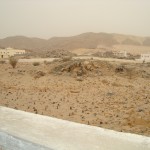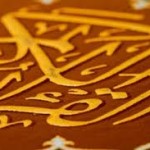Plagues entering Makkah and Madinah
QUESTION: Assalamuailaikum. Could you please give some clarification regarding the ahadith that speak of plagues (ta’un) entering Makkah and Madinah. I understand that the Prophet PBUH said that the plague will not enter Makkah, and in other narrations he also mentioned Madinah. Furthermore, I have learned that the famous Black Death plague did in fact enter Mallah in 1349, but nor Madinah. Which sacred cities are these ahadith referring to.
بسم الله، الحمد لله، وصلى الله وسلم على رسول الله،
ANSWER SUMMARY:
The hadith you have referred to is only applicable to Madῑnah. As for the mention of Makkah, which is mentioned in one version of the hadith, the scholars have considered it to be a mistake of one of the narrators. All the other versions of this narration only make mention of Madῑnah. Furthermore, though it has been authentically narrated that Makkah and Madῑnah are divinely protected from Dajjal being able to enter, the virtue of divine protection from the plague is only authentically reported in relation to Madῑnah. Finally, any epidemic entering Madῑnah would not be contrary to the aḥādῑth either as the divine protection is only for the specific disease commonly known as the ṭā‛ūn (plague).
EXTENDED DISCUSSION:
In the Name of Allah, The Most Compassionate, The Most Merciful,
As for the aḥādῑth wherein the Prophet ﷺmentions the ṭā‛ūn (plague) not being able to enter either of the blessed cities of Makkah or Madῑnah, there are some narrations that only mention Madῑnah and others that mention both.
From amongst the authentic narrations wherein only Madῑnah is mentioned, one is the following:
على أنقاب المدينة ملائكة، لا يدخلها الطاعون، ولا الدجال
“On the pathways of Madῑnah there are angels, the plague or Dajjāl will not be able to enter it.” [1]
The other narrations are mostly of similar wording to this one.
As for the narrations that mention both Madῑnah and Makkah, there appears a narration in Musnad Aḥmad with this wording:
المدينة ومكة محفوفتان بالملائكة، على كل نقب منها ملك لا يدخلها الدجال، ولا الطاعون
“Madῑnah and Makkah are surrounded by angels. On every pathway of it is an angel, neither Dajjāl nor the plague will be able to enter it.” [2]
The plague you have referred to as having entered Makkah seems to be concurrent with what the scholars have mentioned that a plague entered Makkah in the year 749 AH[3] (this would coincide with 1348 – 1349 C.E, the same time as the Black Death). This may apparently seem to contradict the aforementioned ḥadῑth of Musnad Aḥmad. The response to this could be given from various perspectives:
- Imām Ibn Kathῑr (d.774 AH) says that the mention of Makkah in the ḥadῑth of Musnad Aḥmad is a mistake (from one of the narrators), as is the mention of the plague. Therefore, the virtue being mentioned in this particular hadeeth is exclusive to Madῑnah and is only about Dajjāl.[4]
If we were to assume that the word Makkah is not a mistake, then there is still no issue with the ḥadῑth’s meaning for the following reason:
- The wording in the ḥadῑth as it appears in Musnad Aḥmad is ‘لا يدخلها’ – with a singular pronoun. Imām al-Samhūdῑ[5] (d.922 AH) suggests that this could be because only Madῑnah is being referred to. So, even if it was accepted that the mention of Makkah in the ḥadῑth of Musnad Aḥmad is correct, the virtue of being protected by angels from a ṭā‛ūn (plague) only applies to Madῑnah.
Nevertheless, Imām al-Samhūdῑ (d.922 AH)’s suggestion strongly strengthens Imām Ibn Kathῑr’s argument of the mention of Makkah not being correct at all.
- Some scholars had always considered the meaning of ‘a plague not being able to enter Madῑnah’ as referring to especially widespread plagues that have occurred in other places.[6] This does not negate the concept of a few people being infected. If we were to accept that Makkah also has the virtue of protection from the ṭā‛ūn (plague), then this understanding could be extended to Makkah also. It should be noted that this explanation has been given by Imām Abu’l-‘Abbās al-Qurṭubῑ, who passed away in 656 AH, long before the Black Death is supposed to have entered Makkah.
- We must also entertain the possibility of an error from the people who narrated that the Black Death did enter Makkah. Imām Ibn Ḥajar (d.852 AH) points out that it could have been any other cause of death which some people erroneously assumed as being the plague.[7]
- One last point for consideration in relation to the explanation of this issue is that another authentic narration that contains mention of a plague not entering Madῑnah is worded as follows:
المدينة يأتيها الدجال، فيجد الملائكة يحرسونها فلا يقربها الدجال ولا الطاعون إن شاء الله
“Dajjal will approach Madῑnah and will find angels protecting it. So, Dajjal will not be able to enter it and nor will the plague, if Allah wills.”[8]
One explanation for adding “if Allah wills” at the end is that it is for the sake of making an exception and that it refers specifically to the ṭā‛ūn (plague), not Dajjāl, i.e. the ṭā‛ūn will not come except for when Allah wills for it to.[9] Therefore, according to this explanation, it is actually possible that a plague does enter Madῑnah to a minor extent, and this would not go against the aḥādῑth that assure Madῑnah’s protection from the plague.
Before concluding, there are two issues which require clarificaction:
- The negation of the occurrence of a ṭā‛ūn in Madῑnah does not negate the potential presence of other contagious diseases in Madῑnah. This is because the term ṭā‛ūn in the ḥadῑth refers specifically to the plague – a disease whose symptoms include the blackening of the skin, nausea and lumps in certain parts of the body.[10] The Arabic word for any type of contagious epidemics is wabā, of which the ṭā‛ūn (plague) is one type. These other epidemics, besides the plague, could well enter Madῑnah, as they have done so in the past.[11]
- Though it has been shown that there is no authentic narration that asserts Makkah to be divinely protected from the plague, there are numerous other narrations that confirm Makkah is protected from Dajjāl being able to enter.[12] The current discussion pertains specifically to whether the narrations mentioning that a ṭā‛ūn (plague) cannot enter Makkah are valid.
In conclusion, the virtue of being divinely protected from the plague has only been authentically narrated for Madῑnah, not Makkah, whereas the virtue of protection from Dajjāl is for both. If we were to assume that Makkah also has the virtue of being protected from the ṭā‛ūn (plague), then sufficient explanations have been provided.
And Allah knows best.
Answered by
Husain Patel
Concurred by
Hanif Patel
Muadh Chati
Asmar Akram
[1] أخرجه البخاري (1880، 5731، 7133 – ترقيم: عبد الباقي) ومسلم (1379 ترقيم: عبد الباقي)
[2] مسند أحمد (10265 – ط: الرسالة)، وعزاه ابن حجر في الفتح (17:533 – ط: الرسالة) إلى “كتاب مكة” لعمر بن شبة.
[3] ذكره ابن حجر في الفتح (17:531 – ط: الرسالة) والسمهودي في خلاصة الوفا (2:47 – ط: مكتبة الثقافة الدينية)
[4] قال ابن كثير في النهاية في الفتن والملاحم (1/161 – ط: دار الجيل): ” هذا غريب جدا، وذكر مكة في هذا ليس محفوظا، وكذلك ذكر الطاعون، والله تعالى أعلم.”، وأُورِد في التعليق على مسند أحمد (16/184 – ط: الرسالة) وجوه أخر لتضعيف إسناد هذه الرواية خاصة، مما يؤيد أن ذكر مكة في هذا الحديث شاذ، وإن كان الحديث صحيحا، فيُنظر للتفصيل.
[5] قال السمهودي في خلاصة الوفا (1/47 – ط: مكتبة الثقافة الدينية): “قلت: كذا هو لا يدخلها بالإفراد، فيحتمل عودها للمدينة فقط وإن ثبت، لما سيأتي عدم دخول الدجال لمكة، فقد نقل جماعة عن الطاعون العام سنة تسع وأربعين وسبعمائة أنه دخلها، بخلاف المدينة، فلم ينقل ذلك فيها.”
[6] قال أبو العباس القرطبي في المفهم (3/495 ط: دار ابن كثير): “الطاعون: الموت العام الفاشي، ويعني بذلك: أنه لا يكون في المدينة من الطاعون مثل الذي يكون في غيرها من البلاد، كالذي وقع في طاعون عمواس والجارف وغيرهما”، قال الحافظ في الفتح (17/531- ط: الرسالة) بعد نقل قول القرطبي هذا: “وهذا الذي قاله يقتضي تسليم أنه دخلها في الجملة…”
[7]قال في الفتح (17/533- ط: الرسالة): “وعلى هذا فالذي نُقل أنه وجد في سنة تسع وأربعين وسبعمائة منه ليس كما ظن من نَقَلَ ذلك، أو يُجاب إن تحقق ذلك بجواب القرطبي المتقدم.”
[8] أخرجه البخاري (7473، 7134 – ترقيم: عبد الباقي)
[9] في الفتح (17/533- ط: الرسالة): “وإنه اختلف في هذا الاستثناء، فقيل: هو للتبرك فيشملهما، وقيل: هو للتعليق، وأنه يختص بالطاعون وأن مقتضاه جواز دخول الطاعون المدينة.”، ويلاحظ أن الحافظ ابن حجر نفسه لم يوافق القول بكونه للتعليق ولا باختصاصه بالطاعون كما صرّح في مكان آخر في الفتح (23/213- ط: الرسالة).
[10] قال النووي في شرح مسلم (14/204 – ط: دار إحياء التراث): “أما الطاعون فهو قروح تخرج في الجسد فتكون في المرافق أو الآباط أو الأيدي أو الأصابع وسائر البدن ويكون معه ورم وألم شديد، وتخرج تلك القروح مع لهيب ويسْودُّ ما حواليه أو يخضرُّ أو يحمرُّ حمرة بنفسجية كدرة، ويحصل معه خفقان القلب والقيء…قالوا: وكل طاعون وباء وليس كل وباء طاعونا.”
[11] كما في حديث أخرجه البخاري (2643 – ترقيم: عبد الباقي)، ففيه عن أبي الأسود – وهو أحد رواة هذا الحديث -: “أتيتُ المدينة وقد وقع بها مرض وهم يموتون موتا ذريعا، فجلست إلى عمر رضي الله عنه…”
[12] مثل حديث الجساسة الطويل الذي أخرجه مسلم (2942 – ترقيم: عبد الباقي)، ففيه قول الدجال: “… وإني أوشك أن يؤذن لي في الخروج، فأخرج فأسير في الأرض، فلا أدع قرية إلا هبطتها في أربعين ليلةً غير مكة وطَيْبَة فهما محرمتان على كلتاهما…”
DISCLAIMER:
The Ask Our Imam site hopes to respond to queries relating to Islamic law. It is not an Islamic Law Shari`ah Court. The questions and answers found on this website are for educational purposes. However, many of the rulings rendered here are distinct to the specific scenario and thus should be read in conjunction with the question and not taken as a basis to establish a verdict in another situation or environment. This site bears no responsibility in these responses being used out of their intended context, nor to any party who may or may not follow the responses given and is being hereby exempted from loss or damage howsoever caused. None of the responses rendered may be used as evidence in any Court of Law without prior written consent of Our Imam. Any reference to another website or link provided in our responses or article should not be taken as an endorsement of all the content on that website; in fact, it is restricted to the particular material being cited.
Posted in Miscelleaneous on 20th Jul 2020 by Our Imam | 925 Views





